To ease constipation and promote digestive health, a diet rich in fiber, hydration, and certain juices can be very effective. Here are some dietary tips and juices that can help alleviate constipation:
### Dietary Tips for Constipation:
1. **Increase Fiber Intake**: Aim for a mix of soluble and insoluble fiber from sources like whole grains, fruits, vegetables, legumes, and nuts. Examples include oats, beans, apples, and carrots.
2. **Stay Hydrated**: Drink plenty of water throughout the day to help fiber do its job. Dehydration can make constipation worse.
3. **Healthy Fats**: Include sources of healthy fats such as avocados, nuts, seeds, and olive oil, which can help lubricate the intestines.
4. **Regular Meals**: Eat at regular intervals to help maintain a consistent digestive rhythm.
5. **Probiotics**: Consume probiotic-rich foods like yogurt, kefir, sauerkraut, and kimchi to promote healthy gut bacteria.
### Juices to Ease Constipation:
1. **Prune Juice**: Prunes are high in fiber and sorbitol, a natural laxative. Drinking a glass of prune juice can help stimulate bowel movements.
Prunes are high in fiber and sorbitol, a natural laxative. Drinking a glass of prune juice can help stimulate bowel movements.
 Prunes are high in fiber and sorbitol, a natural laxative. Drinking a glass of prune juice can help stimulate bowel movements.
Prunes are high in fiber and sorbitol, a natural laxative. Drinking a glass of prune juice can help stimulate bowel movements.Prune juice is a well-known natural remedy for constipation due to its high fiber and sorbitol content. Sorbitol is a sugar alcohol that has a natural laxative effect. Here's a guide on how to use prune juice for constipation, its benefits, dosage, and considerations:
### Benefits of Prune Juice for Constipation
1. **High Fiber Content**: Prune juice is rich in dietary fiber, which adds bulk to the stool and helps promote regular bowel movements.
2. **Sorbitol**: Sorbitol is a natural laxative found in prunes and prune juice. It helps soften the stool and makes it easier to pass.
### How to Use Prune Juice for Constipation
#### Ingredients:
- Pure prune juice (without added sugars or preservatives)
- Water (optional)
#### Instructions:
1. **Selecting Prune Juice**: Look for pure prune juice without added sugars or preservatives. Organic varieties are also available.
2. **Dosage**:
- Start with a small amount, such as 4-6 ounces (about 120-180 ml) of prune juice.
- If needed, you can gradually increase the amount until you find the right dosage for your body.
3. **Consumption**:
- Drink the prune juice in the morning on an empty stomach for best results.
- It's advisable to drink it slowly and not to consume large quantities at once to avoid stomach upset.
4. **Hydration**:
- Drink plenty of water throughout the day when consuming prune juice to help the fiber work effectively.
### Considerations and Precautions
1. **Natural Laxative Effect**: Prune juice can have a laxative effect, so it's important not to overconsume. Excessive intake can lead to diarrhea and stomach cramps.
2. **Individual Tolerance**: Some people may be more sensitive to the laxative effects of prune juice than others. Start with a small amount to gauge your body's response.
3. **Nutritional Content**: While prune juice is beneficial for constipation, it is also relatively high in sugar and calories. It's best to consume it in moderation as part of a balanced diet.
4. **Other Medical Conditions**: If you have diabetes, irritable bowel syndrome (IBS), or other medical conditions, consult with your healthcare provider before using prune juice as a remedy for constipation.
5. **Medication Interactions**: Prune juice may interact with certain medications, such as blood thinners or medications for diabetes. Consult with your healthcare provider if you are taking any medications.
Prune juice can be a safe and effective natural remedy for constipation when used appropriately. However, it's important to listen to your body and adjust the dosage based on your individual needs and tolerance. If constipation persists or is accompanied by other symptoms, seek medical advice.
2. **Apple Juice**: Apples contain pectin, a type of soluble fiber that can help ease constipation. Apple juice, especially with the pulp, can be beneficial.
Apples contain pectin, a type of soluble fiber that can help ease constipation. Apple juice, especially with the pulp, can be beneficial.
 Apples contain pectin, a type of soluble fiber that can help ease constipation. Apple juice, especially with the pulp, can be beneficial.
Apples contain pectin, a type of soluble fiber that can help ease constipation. Apple juice, especially with the pulp, can be beneficial. Apple juice, especially when made from fresh apples, can be a mild and natural way to help alleviate constipation. Here's how apple juice can help, how to use it effectively, and some considerations:
### How Apple Juice Helps with Constipation
1. **Natural Fiber**: Apples are rich in dietary fiber, including both soluble and insoluble fiber, which can help add bulk to the stool and promote regular bowel movements.
2. **Sorbitol Content**: Apples also contain sorbitol, a natural sugar alcohol with a laxative effect that can help soften stool and ease its passage.
### How to Use Apple Juice for Constipation
#### Ingredients:
- Fresh apples
- Water (optional)
#### Instructions:
1. **Selecting Apples**: Choose fresh, organic apples for juicing. Wash them thoroughly before juicing.
2. **Juicing**:
- Remove the cores and seeds from the apples.
- Juice the apples using a juicer or blender. If using a blender, strain the juice to remove pulp.
- You can dilute the juice with water if desired.
3. **Dosage**:
- Start with a small amount, such as 4-6 ounces (about 120-180 ml) of apple juice.
- Gradually increase the amount if needed until you find the right dosage for your body.
4. **Consumption**:
- Drink the apple juice in the morning on an empty stomach for best results.
- It's advisable to drink it slowly and not to consume large quantities at once to avoid stomach upset.
5. **Hydration**:
- Drink plenty of water throughout the day when consuming apple juice to help the fiber work effectively.
### Considerations and Precautions
1. **High in Sugar**: Apple juice is naturally high in sugar, so it's best to consume it in moderation, especially if you're watching your sugar intake.
2. **Individual Tolerance**: Some people may be more sensitive to the laxative effects of apple juice, especially if consumed in large quantities. Start with a small amount to gauge your body's response.
3. **Whole Apples vs. Juice**: While apple juice can be beneficial for constipation, eating whole apples may provide additional benefits due to their higher fiber content.
4. **Other Medical Conditions**: If you have diabetes or other medical conditions, consult with your healthcare provider before using apple juice as a remedy for constipation.
5. **Medication Interactions**: Apple juice may interact with certain medications. If you are taking any medications, consult with your healthcare provider before consuming apple juice regularly.
Apple juice can be a gentle and natural way to help relieve constipation, but it's important to consume it in moderation and as part of a balanced diet. If constipation persists or is accompanied by other symptoms, seek medical advice.
3. **Pear Juice**:  Pears are another fruit high in fiber and sorbitol. Pear juice can help soften stool and promote bowel movements.
Pears are another fruit high in fiber and sorbitol. Pear juice can help soften stool and promote bowel movements.
 Pears are another fruit high in fiber and sorbitol. Pear juice can help soften stool and promote bowel movements.
Pears are another fruit high in fiber and sorbitol. Pear juice can help soften stool and promote bowel movements. Pear juice, like prune and apple juice, can be an effective natural remedy for constipation due to its high fiber and sorbitol content. Here's how pear juice can help, how to use it, and some considerations:
### How Pear Juice Helps with Constipation
1. **High Fiber Content**: Pears are rich in dietary fiber, including both soluble and insoluble fiber, which can help add bulk to the stool and promote regular bowel movements.
2. **Sorbitol Content**: Pears also contain sorbitol, a natural sugar alcohol with a laxative effect that can help soften stool and ease its passage.
### How to Use Pear Juice for Constipation
#### Ingredients:
- Fresh pears
- Water (optional)
#### Instructions:
1. **Selecting Pears**: Choose ripe, fresh pears for juicing. Wash them thoroughly before juicing.
2. **Juicing**:
- Remove the cores and seeds from the pears.
- Juice the pears using a juicer or blender. If using a blender, strain the juice to remove pulp.
- You can dilute the juice with water if desired.
3. **Dosage**:
- Start with a small amount, such as 4-6 ounces (about 120-180 ml) of pear juice.
- Gradually increase the amount if needed until you find the right dosage for your body.
4. **Consumption**:
- Drink the pear juice in the morning on an empty stomach for best results.
- It's advisable to drink it slowly and not to consume large quantities at once to avoid stomach upset.
5. **Hydration**:
- Drink plenty of water throughout the day when consuming pear juice to help the fiber work effectively.
### Considerations and Precautions
1. **High in Sugar**: Pear juice is naturally high in sugar, so it's best to consume it in moderation, especially if you're watching your sugar intake.
2. **Individual Tolerance**: Some people may be more sensitive to the laxative effects of pear juice, especially if consumed in large quantities. Start with a small amount to gauge your body's response.
3. **Whole Pears vs. Juice**: While pear juice can be beneficial for constipation, eating whole pears may provide additional benefits due to their higher fiber content.
4. **Other Medical Conditions**: If you have diabetes or other medical conditions, consult with your healthcare provider before using pear juice as a remedy for constipation.
5. **Medication Interactions**: Pear juice may interact with certain medications. If you are taking any medications, consult with your healthcare provider before consuming pear juice regularly.
Pear juice can be a gentle and natural way to help relieve constipation, but it's important to consume it in moderation and as part of a balanced diet. If constipation persists or is accompanied by other symptoms, seek medical advice.
4. **Aloe Vera Juice**:
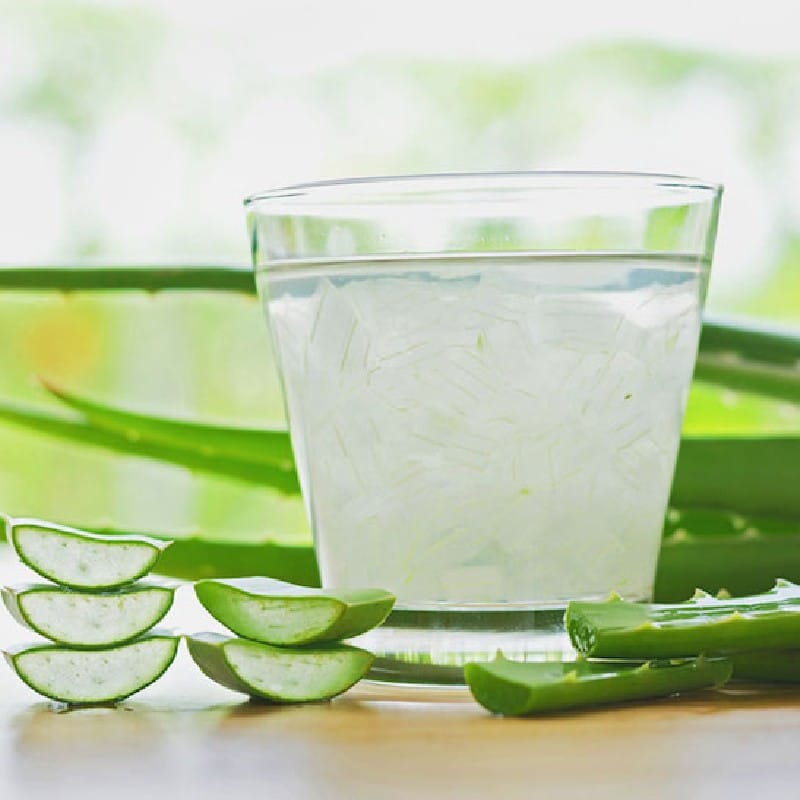 Aloe vera has natural laxative properties and can help soothe Aloe vera juice can be a natural remedy for constipation due to its soothing and laxative properties. Here's a guide on how to use aloe vera juice for constipation, including how to prepare it and some important considerations.
Aloe vera has natural laxative properties and can help soothe Aloe vera juice can be a natural remedy for constipation due to its soothing and laxative properties. Here's a guide on how to use aloe vera juice for constipation, including how to prepare it and some important considerations.### Benefits of Aloe Vera Juice for Constipation
1. **Natural Laxative**: Aloe vera contains compounds called anthraquinones, which have natural laxative effects and can stimulate bowel movements.
2. **Hydration**: Aloe vera juice is hydrating, which helps soften stool and promote regularity.
3. **Anti-inflammatory Properties**: Aloe vera can reduce inflammation in the digestive tract, easing discomfort associated with constipation.
### How to Prepare Aloe Vera Juice
#### Ingredients:
- Fresh aloe vera leaf or store-bought pure aloe vera juice
- Water
- Optional: Lemon juice, honey, or another fruit juice for flavor
#### Instructions:
1. **Harvesting Gel from Fresh Aloe Vera Leaf**:
- Wash the aloe vera leaf thoroughly.
- Cut off the spiky edges and the base.
- Slice the leaf open lengthwise.
- Use a spoon to scoop out the clear gel from the inside of the leaf.
- Be careful to avoid the yellowish part just under the skin, as it can be irritating.
2. **Blending**:
- Add 1-2 tablespoons of the fresh aloe vera gel to a blender.
- Add 1 cup of water.
- Blend until smooth.
3. **Optional Flavoring**:
- For improved taste, add a squeeze of lemon juice and a teaspoon of honey, or blend with another fruit juice like apple or orange juice.
4. **Straining**:
- Strain the mixture if desired, to remove any pulp.
- Pour into a glass and drink immediately.
### Dosage and Usage
- **Start Small**: Begin with a small amount, such as 1-2 tablespoons of aloe vera juice mixed with water or another juice.
- **Monitor Effects**: Observe how your body responds. Aloe vera juice can be potent, and consuming too much can lead to diarrhea or cramping.
- **Frequency**: Use aloe vera juice sparingly and not for extended periods. Drinking it occasionally, such as once or twice a week, can help with constipation without causing dependency.
### Precautions and Considerations
1. **Quality of Aloe Vera**: Ensure you use high-quality, pure aloe vera juice. Check labels for additives or preservatives.
2. **Allergic Reactions**: Some people may be allergic to aloe vera. If you experience any adverse reactions, discontinue use and consult a healthcare provider.
3. **Consult Healthcare Providers**: Before starting any new remedy, especially if you have underlying health conditions or are pregnant, consult with a healthcare professional.
4. **Potential Side Effects**: Overuse of aloe vera juice can lead to dehydration and electrolyte imbalances due to its laxative effect. Use it cautiously and in moderation.
Aloe vera juice can be an effective and natural way to alleviate constipation when used properly. Always prioritize hydration, a balanced diet, and consult with healthcare professionals for persistent or severe digestive issues.
5. **Kiwi Juice**: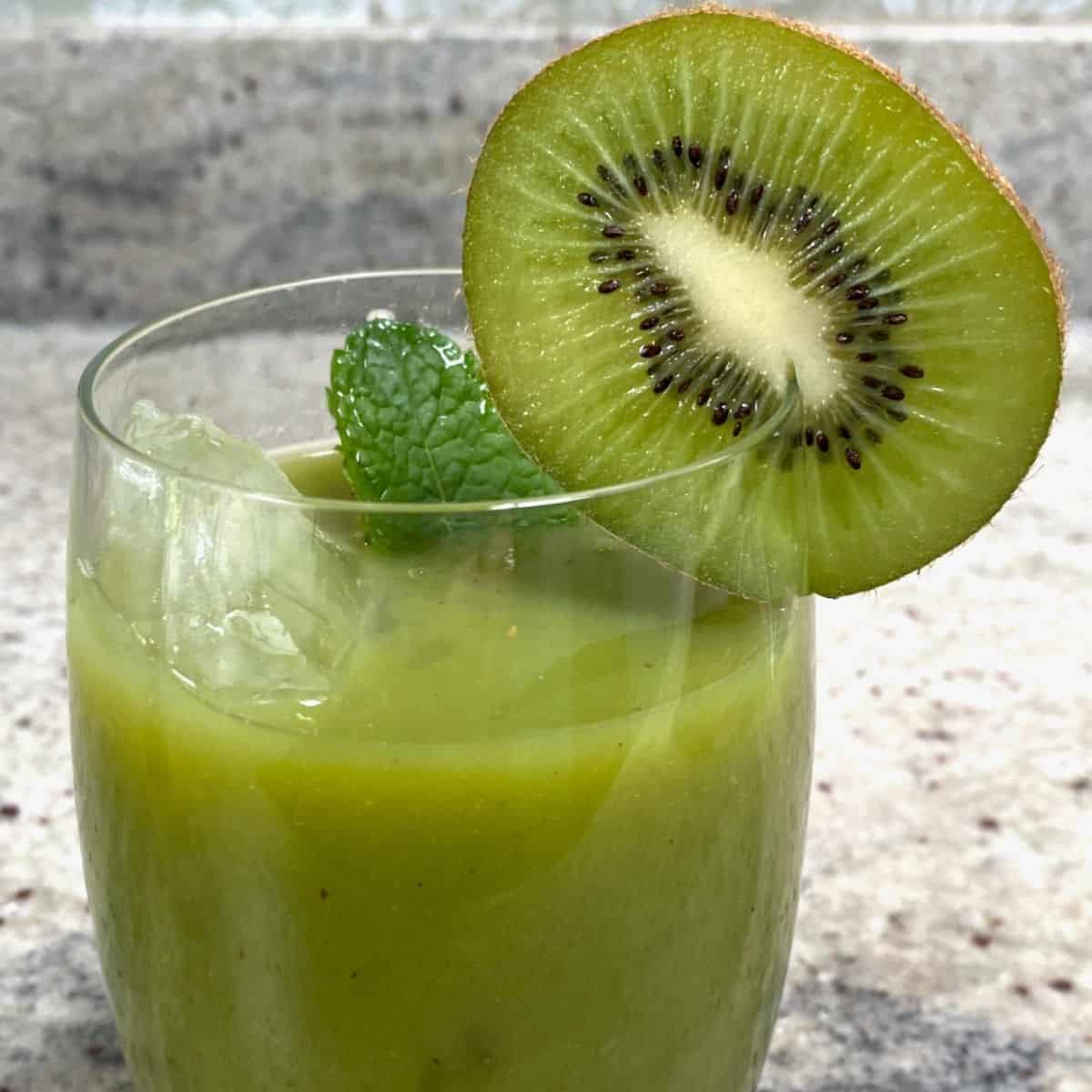 Kiwis are rich in fiber and contain an enzyme called actinidin that aids digestion. Blending kiwis into a juice can help with constipation. Kiwi juice can be an effective natural remedy for constipation due to its high fiber content and the presence of an enzyme called actinidin, which aids in digestion. Here's how kiwi juice can help, how to use it, and some considerations:
Kiwis are rich in fiber and contain an enzyme called actinidin that aids digestion. Blending kiwis into a juice can help with constipation. Kiwi juice can be an effective natural remedy for constipation due to its high fiber content and the presence of an enzyme called actinidin, which aids in digestion. Here's how kiwi juice can help, how to use it, and some considerations:
 Kiwis are rich in fiber and contain an enzyme called actinidin that aids digestion. Blending kiwis into a juice can help with constipation. Kiwi juice can be an effective natural remedy for constipation due to its high fiber content and the presence of an enzyme called actinidin, which aids in digestion. Here's how kiwi juice can help, how to use it, and some considerations:
Kiwis are rich in fiber and contain an enzyme called actinidin that aids digestion. Blending kiwis into a juice can help with constipation. Kiwi juice can be an effective natural remedy for constipation due to its high fiber content and the presence of an enzyme called actinidin, which aids in digestion. Here's how kiwi juice can help, how to use it, and some considerations:### How Kiwi Juice Helps with Constipation
1. **High Fiber Content**: Kiwis are rich in dietary fiber, including both soluble and insoluble fiber, which can help add bulk to the stool and promote regular bowel movements.
2. **Actinidin Enzyme**: Kiwis contain actinidin, an enzyme that helps break down proteins in the digestive system and aids in digestion, which can help alleviate constipation.
### How to Use Kiwi Juice for Constipation
#### Ingredients:
- Fresh kiwis
- Water (optional)
#### Instructions:
1. **Selecting Kiwis**: Choose ripe, fresh kiwis for juicing. Wash them thoroughly before juicing.
2. **Juicing**:
- Peel the kiwis and cut them into smaller pieces.
- Juice the kiwis using a juicer or blender. If using a blender, strain the juice to remove seeds and pulp.
- You can dilute the juice with water if desired.
3. **Dosage**:
- Start with a small amount, such as 1-2 kiwis (about 4-6 ounces or 120-180 ml of juice).
- Gradually increase the amount if needed until you find the right dosage for your body.
4. **Consumption**:
- Drink the kiwi juice in the morning on an empty stomach for best results.
- It's advisable to drink it slowly and not to consume large quantities at once to avoid stomach upset.
5. **Hydration**:
- Drink plenty of water throughout the day when consuming kiwi juice to help the fiber work effectively.
### Considerations and Precautions
1. **Allergies**: Some people may be allergic to kiwi. If you experience any adverse reactions, such as itching, swelling, or difficulty breathing, discontinue use and consult a healthcare provider.
2. **High in Vitamin C**: Kiwi juice is also high in vitamin C, which can have a laxative effect in high doses. Consuming large amounts of kiwi juice may cause diarrhea in some individuals.
3. **Individual Tolerance**: Some people may be more sensitive to the laxative effects of kiwi juice, especially if consumed in large quantities. Start with a small amount to gauge your body's response.
4. **Other Medical Conditions**: If you have diabetes or other medical conditions, consult with your healthcare provider before using kiwi juice as a remedy for constipation.
5. **Medication Interactions**: Kiwi juice may interact with certain medications. If you are taking any medications, consult with your healthcare provider before consuming kiwi juice regularly.
Kiwi juice can be a gentle and natural way to help relieve constipation, but it's important to consume it in moderation and as part of a balanced diet. If constipation persists or is accompanied by other symptoms, seek medical advice.
6. **Lemon Juice**:  Warm water with lemon juice can stimulate the digestive system and help relieve constipation. Drink it first thing in the morning.Lemon juice is known for its cleansing and digestive properties, which can help with constipation. Here's how lemon juice can help, how to use it, and some considerations:
Warm water with lemon juice can stimulate the digestive system and help relieve constipation. Drink it first thing in the morning.Lemon juice is known for its cleansing and digestive properties, which can help with constipation. Here's how lemon juice can help, how to use it, and some considerations:
 Warm water with lemon juice can stimulate the digestive system and help relieve constipation. Drink it first thing in the morning.Lemon juice is known for its cleansing and digestive properties, which can help with constipation. Here's how lemon juice can help, how to use it, and some considerations:
Warm water with lemon juice can stimulate the digestive system and help relieve constipation. Drink it first thing in the morning.Lemon juice is known for its cleansing and digestive properties, which can help with constipation. Here's how lemon juice can help, how to use it, and some considerations:### How Lemon Juice Helps with Constipation
1. **Lemon's Citric Acid**: Lemon juice contains citric acid, which can help stimulate the digestive system and promote bowel movements.
2. **Vitamin C**: Lemons are high in vitamin C, which has antioxidant properties and can help soften stool by drawing water into the intestines.
### How to Use Lemon Juice for Constipation
#### Ingredients:
- Fresh lemons
- Water (warm or room temperature)
#### Instructions:
1. **Squeeze Fresh Lemon Juice**:
- Squeeze the juice of half a lemon into a glass.
- Add warm or room temperature water to dilute the lemon juice. Start with a small amount of water, such as half a cup, and adjust to your taste preference.
2. **Optional Additions**:
- You can add a pinch of sea salt or a teaspoon of honey to enhance the flavor and add additional benefits.
3. **Consumption**:
- Drink the lemon water in the morning on an empty stomach for best results.
- It's advisable to drink it slowly and not to consume large quantities at once to avoid stomach upset.
4. **Hydration**:
- Drink plenty of water throughout the day when consuming lemon water to help with hydration and digestion.
### Considerations and Precautions
1. **Acidic Nature**: Lemon juice is acidic and can potentially erode tooth enamel. To minimize this risk, it's advisable to drink lemon water through a straw and rinse your mouth afterward.
2. **Gastric Issues**: Some people may experience gastric irritation or heartburn when consuming lemon juice. If you have a history of gastric issues, consult with a healthcare provider before using lemon juice for constipation.
3. **Individual Tolerance**: While lemon juice can be beneficial for constipation, some individuals may be more sensitive to its effects. Start with a small amount to gauge your body's response.
4. **Other Medical Conditions**: If you have kidney or gallbladder issues, or are on medications that interact with citrus fruits, consult with your healthcare provider before using lemon juice as a remedy for constipation.
5. **Effects on Tooth Enamel**: Lemon juice, especially when consumed frequently or in large amounts, can potentially erode tooth enamel. It's advisable to drink lemon water in moderation and rinse your mouth afterward.
Lemon juice can be a simple and natural way to help relieve constipation, but it's important to consume it in moderation and as part of a balanced diet. If constipation persists or is accompanied by other symptoms, seek medical advice.
7. **Spinach Juice**: 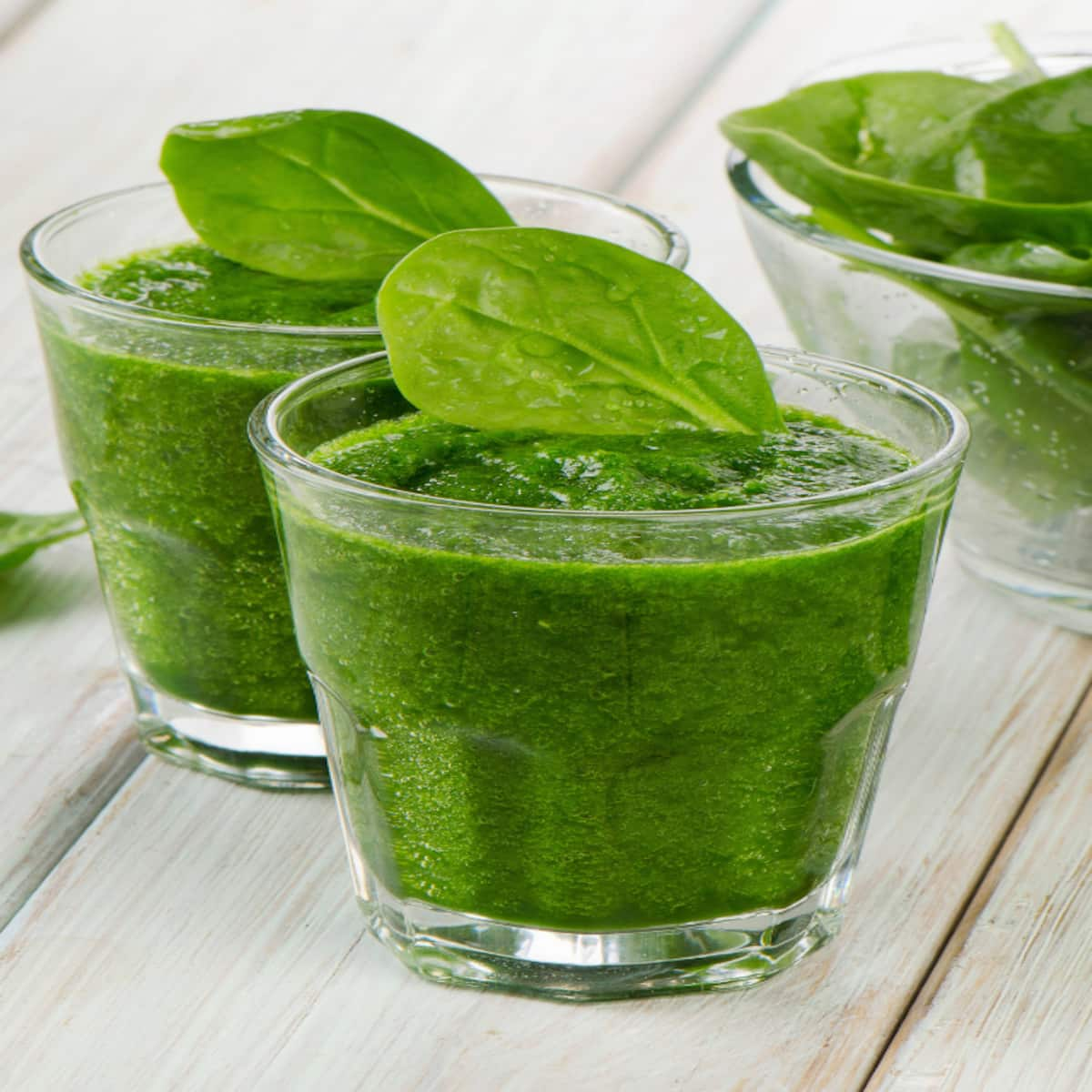 Spinach is high in fiber and magnesium, which can help with bowel movements. Mixing spinach with other fruits or vegetables can make a tasty juice.Spinach juice can be a beneficial addition to your diet to help with constipation due to its high fiber content and other nutrients. Here's how spinach juice can help, how to use it, and some considerations:
Spinach is high in fiber and magnesium, which can help with bowel movements. Mixing spinach with other fruits or vegetables can make a tasty juice.Spinach juice can be a beneficial addition to your diet to help with constipation due to its high fiber content and other nutrients. Here's how spinach juice can help, how to use it, and some considerations:
 Spinach is high in fiber and magnesium, which can help with bowel movements. Mixing spinach with other fruits or vegetables can make a tasty juice.Spinach juice can be a beneficial addition to your diet to help with constipation due to its high fiber content and other nutrients. Here's how spinach juice can help, how to use it, and some considerations:
Spinach is high in fiber and magnesium, which can help with bowel movements. Mixing spinach with other fruits or vegetables can make a tasty juice.Spinach juice can be a beneficial addition to your diet to help with constipation due to its high fiber content and other nutrients. Here's how spinach juice can help, how to use it, and some considerations:### How Spinach Juice Helps with Constipation
1. **High Fiber Content**: Spinach is rich in dietary fiber, which adds bulk to the stool and promotes regular bowel movements.
2. **Magnesium**: Spinach contains magnesium, which helps relax muscles in the digestive tract and can aid in relieving constipation.
3. **Hydration**: Spinach is also hydrating, which can help soften stool and make it easier to pass.
### How to Use Spinach Juice for Constipation
#### Ingredients:
- Fresh spinach leaves
- Water (optional)
#### Instructions:
1. **Preparing Spinach Juice**:
- Wash the spinach leaves thoroughly.
- Blend the spinach leaves with a small amount of water in a blender until smooth.
- You can strain the juice to remove pulp if desired.
2. **Dosage**:
- Start with a small amount, such as 4-6 ounces (about 120-180 ml) of spinach juice.
- Gradually increase the amount if needed until you find the right dosage for your body.
3. **Consumption**:
- Drink the spinach juice in the morning on an empty stomach for best results.
- It's advisable to drink it slowly and not to consume large quantities at once to avoid stomach upset.
4. **Hydration**:
- Drink plenty of water throughout the day when consuming spinach juice to help the fiber work effectively.
### Considerations and Precautions
1. **Kidney Stones**: Spinach is high in oxalates, which can contribute to the formation of kidney stones in susceptible individuals. If you have a history of kidney stones, consult with your healthcare provider before consuming spinach juice regularly.
2. **Iron Absorption**: Spinach contains compounds that can inhibit the absorption of iron. If you are at risk of iron deficiency, consider consuming spinach juice in moderation and with foods rich in vitamin C to enhance iron absorption.
3. **Individual Tolerance**: Some people may experience stomach upset or bloating when consuming spinach juice, especially if consumed in large quantities. Start with a small amount to gauge your body's response.
4. **Other Medical Conditions**: If you have gastrointestinal issues or are on medications that interact with leafy greens, consult with your healthcare provider before using spinach juice as a remedy for constipation.
Spinach juice can be a nutritious and natural way to help relieve constipation, but it's important to consume it in moderation and as part of a balanced diet. If constipation persists or is accompanied by other symptoms, seek medical advice.
8. **Cucumber Juice**:.jpg?alt=media&token=890e3870-e416-4216-8256-fb269803f8dc) Cucumbers are hydrating and contain a good amount of fiber. Blending cucumbers with water or other fruits can make a refreshing juice.
Cucumbers are hydrating and contain a good amount of fiber. Blending cucumbers with water or other fruits can make a refreshing juice.
.jpg?alt=media&token=890e3870-e416-4216-8256-fb269803f8dc) Cucumbers are hydrating and contain a good amount of fiber. Blending cucumbers with water or other fruits can make a refreshing juice.
Cucumbers are hydrating and contain a good amount of fiber. Blending cucumbers with water or other fruits can make a refreshing juice.Cucumber juice can be a refreshing and hydrating addition to your diet that may help with constipation. Here's how cucumber juice can help, how to use it, and some considerations:
### How Cucumber Juice Helps with Constipation
1. **Hydration**: Cucumbers are high in water content, which can help hydrate the body and soften stool, making it easier to pass.
2. **Dietary Fiber**: While cucumbers are not as high in fiber as some other fruits and vegetables, they still contain some fiber, which can aid in digestion and promote regular bowel movements.
### How to Use Cucumber Juice for Constipation
#### Ingredients:
- Fresh cucumbers
- Water (optional)
#### Instructions:
1. **Preparing Cucumber Juice**:
- Wash the cucumbers thoroughly.
- If the cucumbers are not organic, consider peeling them to remove any pesticide residue.
- Blend the cucumbers with a small amount of water in a blender until smooth.
- You can strain the juice to remove pulp if desired.
2. **Dosage**:
- Start with a small amount, such as 4-6 ounces (about 120-180 ml) of cucumber juice.
- Gradually increase the amount if needed until you find the right dosage for your body.
3. **Consumption**:
- Drink the cucumber juice in the morning on an empty stomach for best results.
- It's advisable to drink it slowly and not to consume large quantities at once to avoid stomach upset.
4. **Hydration**:
- Drink plenty of water throughout the day when consuming cucumber juice to help with hydration and digestion.
### Considerations and Precautions
1. **Low Fiber Content**: While cucumbers do contain some fiber, they are not as high in fiber as other fruits and vegetables. Consider combining cucumber juice with other high-fiber foods to enhance its effectiveness in relieving constipation.
2. **Sensitivity**: Some people may be sensitive to cucumbers and may experience bloating or gas when consuming cucumber juice. If you experience any adverse reactions, discontinue use and consult with a healthcare provider.
3. **Other Medical Conditions**: If you have kidney issues or are on medications that interact with cucumbers, consult with your healthcare provider before consuming cucumber juice regularly.
Cucumber juice can be a refreshing addition to your diet that may help with constipation, especially when combined with other dietary and lifestyle changes. If constipation persists or is accompanied by other symptoms, seek medical advice.
9. **Ginger Juice**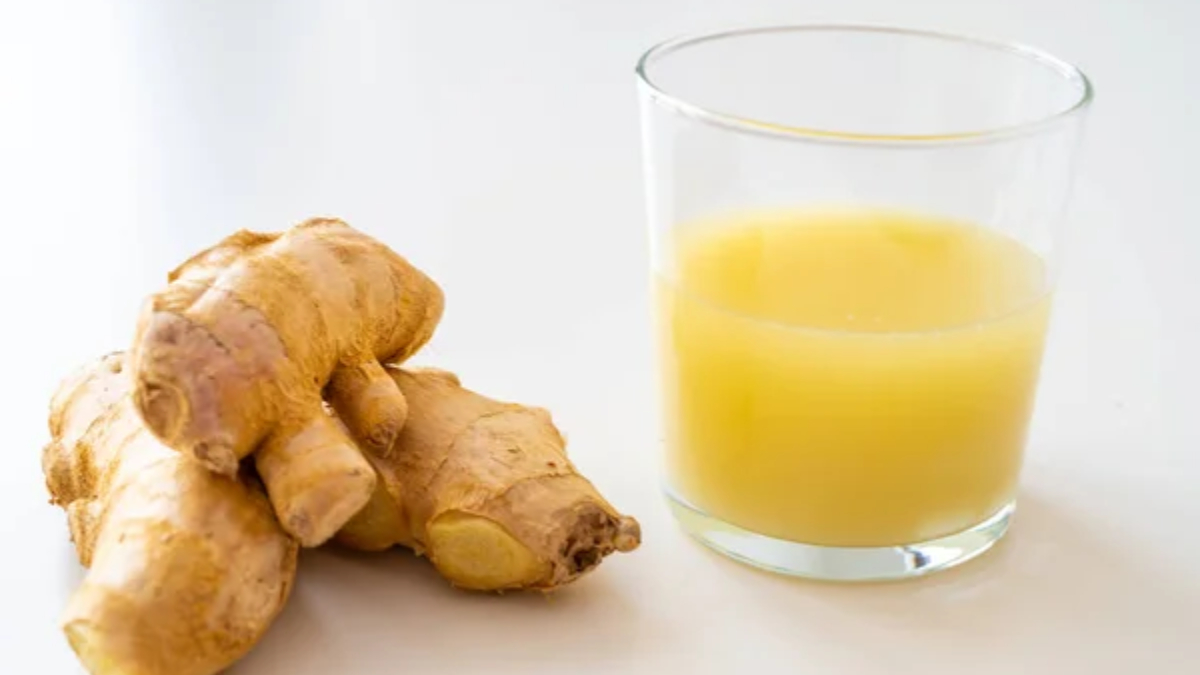 : Ginger can help stimulate digestion and reduce inflammation in the gut. A small amount of ginger juice mixed with other juices can be effective.Ginger juice can be a beneficial remedy for constipation due to its natural laxative properties and ability to aid digestion. Here's how ginger juice can help, how to use it, and some considerations:
: Ginger can help stimulate digestion and reduce inflammation in the gut. A small amount of ginger juice mixed with other juices can be effective.Ginger juice can be a beneficial remedy for constipation due to its natural laxative properties and ability to aid digestion. Here's how ginger juice can help, how to use it, and some considerations:
 : Ginger can help stimulate digestion and reduce inflammation in the gut. A small amount of ginger juice mixed with other juices can be effective.Ginger juice can be a beneficial remedy for constipation due to its natural laxative properties and ability to aid digestion. Here's how ginger juice can help, how to use it, and some considerations:
: Ginger can help stimulate digestion and reduce inflammation in the gut. A small amount of ginger juice mixed with other juices can be effective.Ginger juice can be a beneficial remedy for constipation due to its natural laxative properties and ability to aid digestion. Here's how ginger juice can help, how to use it, and some considerations:### How Ginger Juice Helps with Constipation
1. **Stimulates Digestion**: Ginger contains compounds like gingerol and shogaol that help stimulate the digestive system, promoting bowel movements.
2. **Reduces Inflammation**: Ginger has anti-inflammatory properties that can help soothe the digestive tract and reduce bloating or discomfort associated with constipation.
### How to Use Ginger Juice for Constipation
#### Ingredients:
- Fresh ginger root
- Water
#### Instructions:
1. **Preparing Ginger Juice**:
- Wash the ginger root thoroughly and peel off the skin.
- Grate or finely chop the ginger.
- Blend the chopped ginger with a small amount of water in a blender until smooth.
- Strain the mixture to extract the juice.
2. **Dosage**:
- Start with a small amount, such as 1-2 teaspoons of ginger juice.
- Gradually increase the amount if needed until you find the right dosage for your body.
3. **Consumption**:
- Drink the ginger juice in the morning on an empty stomach for best results.
- You can also add ginger juice to other juices or teas for added flavor and benefits.
### Considerations and Precautions
1. **Spicy Flavor**: Ginger has a spicy flavor, which some people may find strong. Start with a small amount and adjust to your taste preference.
2. **Sensitive Stomach**: Some people with sensitive stomachs may experience irritation or burning sensations when consuming ginger juice. If you experience any discomfort, discontinue use and consult with a healthcare provider.
3. **Blood Thinners**: Ginger may interact with blood-thinning medications. If you are on medication or have any medical conditions, consult with your healthcare provider before consuming ginger juice regularly.
Ginger juice can be a natural and effective way to help relieve constipation, but it's important to consume it in moderation and as part of a balanced diet. If constipation persists or is accompanied by other symptoms, seek medical advice.
10. **Papaya Juice**: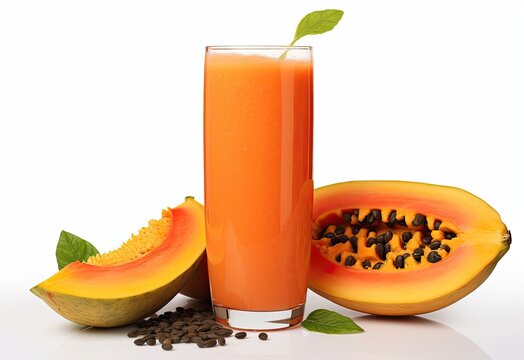 Papayas contain an enzyme called papain, which aids in digestion and helps alleviate constipation.
Papayas contain an enzyme called papain, which aids in digestion and helps alleviate constipation.
 Papayas contain an enzyme called papain, which aids in digestion and helps alleviate constipation.
Papayas contain an enzyme called papain, which aids in digestion and helps alleviate constipation.Papaya juice is a popular remedy for constipation due to its natural enzymes, fiber content, and high water content. Here's how papaya juice can help, how to use it, and some considerations:
### How Papaya Juice Helps with Constipation
1. **Enzymes**: Papayas contain enzymes like papain, which can help break down proteins and aid in digestion, promoting regular bowel movements.
2. **Fiber**: Papayas are rich in dietary fiber, including soluble fiber, which can add bulk to the stool and promote bowel regularity.
3. **Hydration**: Papayas have a high water content, which can help hydrate the body and soften stool, making it easier to pass.
### How to Use Papaya Juice for Constipation
#### Ingredients:
- Ripe papaya
- Water (optional)
#### Instructions:
1. **Preparing Papaya Juice**:
- Peel and deseed the papaya.
- Cut the papaya into small pieces.
- Blend the papaya pieces with a small amount of water in a blender until smooth.
- Strain the mixture to extract the juice.
2. **Dosage**:
- Start with a small amount, such as 4-6 ounces (about 120-180 ml) of papaya juice.
- Gradually increase the amount if needed until you find the right dosage for your body.
3. **Consumption**:
- Drink the papaya juice in the morning on an empty stomach for best results.
- It's advisable to drink it slowly and not to consume large quantities at once to avoid stomach upset.
4. **Hydration**:
- Drink plenty of water throughout the day when consuming papaya juice to help with hydration and digestion.
### Considerations and Precautions
1. **Allergic Reactions**: Some people may be allergic to papaya. If you experience any adverse reactions, such as itching, swelling, or difficulty breathing, discontinue use and consult with a healthcare provider.
2. **Blood Sugar Levels**: Papaya juice is naturally sweet and may affect blood sugar levels, especially in individuals with diabetes. Monitor your blood sugar levels closely if you have diabetes and consume papaya juice in moderation.
3. **Gastrointestinal Sensitivity**: Some people may experience stomach upset or diarrhea when consuming papaya juice, especially if consumed in large quantities. Start with a small amount to gauge your body's response.
4. **Other Medical Conditions**: If you have gastrointestinal issues or are on medications that interact with papayas, consult with your healthcare provider before consuming papaya juice regularly.
Papaya juice can be a delicious and natural way to help relieve constipation, but it's important to consume it in moderation and as part of a balanced diet. If constipation persists or is accompanied by other symptoms, seek medical advice.
### Sample Juice Recipe for Constipation:
**Green Apple and Spinach Juice**
Ingredients:
- 1 green apple
- 1 cup spinach leaves
- 1/2 cucumber
- 1 small piece of ginger
- 1/2 lemon (juiced)
- 1 cup water
Instructions:
1. Wash all the ingredients thoroughly.
2. Core and chop the apple.
3. Chop the cucumber and ginger.
4. Add all the ingredients to a blender.
5. Blend until smooth.
6. Strain if desired, or drink as is for added fiber.
7. Enjoy immediately.
Incorporating these dietary changes and juices into your routine can help improve digestive health and relieve constipation. If constipation persists, it is important to consult a healthcare professional.




